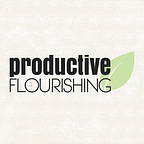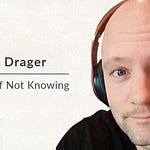Lee Rankin, owner of Apple Hill Farm, an award-winning agri-tourism business in North Carolina. Lee joins Charlie on the show today to talk about the challenges and triumphs of starting a farm from scratch, and growing it while being a single mom in the middle of North Carolina. While the story is primarily about the farm, she encounters many of the same patterns and principles that we see in all types of creative work and businesses.
Key Takeaways:
[2:35] - When Lee was 40, she took her one and a half year old son to the Kentucky State Fair and she met an alpaca. In that moment, she realized that what she wanted to do was raise alpacas. When she had fulfilled her current commitment in Kentucky, she moved herself and her son to North Carolina and they found a property, and that’s how it all started.
[6:00] - Alpacas date back to Incan times, and Lee thinks they have that same energy pattern intact, and that’s why people are drawn to them. This connection doesn’t seem to happen with just any animal.
[8:30] - Along this journey, Lee not only learned about farming, but also learned a lot about herself. First and foremost, she learned that she doesn’t have to know how to do something to actually do it. It’s more about her wanting to do it, moving forward, and learning how to correct when she needs to go in a different direction.
[9:54] - Looking back on it, Lee learned that she is much braver and more courageous than she had any idea. Charlie talks about “moral luck,”and the idea that there are times and spaces where we are in certain situations that allow us to manifest bravery and courage. We can’t always know or predict what we’ll do in a given situation.
[11:38] - There were a lot of challenges in getting things started, and sometimes looking back on it, she can’t believe she made it through (while raising a child!). One of the first things that happened, about six months into raising alpacas, was that there was an attack on them and she lost four out of five of the alpacas. She discovered her bravery in her quick action and reaction in getting help. Because one lived, they were able to move forward.
[16:50] - The alpacas they lost were insured, and although it wasn’t easy, they were able to use the insurance to purchase new alpacas. Had they not been insured, it would’ve been a great loss of money in addition to the loss of the animals. Lee explains a bit about the alpaca business model; their intention was to breed and show.
[18:40] - They stayed in the selling animals business for a while, but they also gained some interest in people coming to visit their farm. Lee talks about some of the precautions they put in place to protect the alpacas (more animals), and how that became a story.
[20:48] - There are many parallels between creative businesses and the farm business. What usually happens in businesses of all types, is that thing you originally start your business around is not always what makes it profitable. For Lee’s business, people were originally coming for the story around the tragedy, but now they keep coming back to the farm because they have a group of animals that work together and allow them to experience something they’re not used to seeing.
[23:27] - The shift to agri-tourism started slowly, and they had to make some changes to become an agri-tourism farm. Lee had to have the animals handled in a way that allows her to spend time with the guests, and they also opened a store.
[24:12] - Agri-tourism is tourism on a farm that has to do with agriculture or the land. People are interested in seeing and teaching these processes. They also attract families because families are interested in doing things they can do all together. Fundamentally, they are selling an experience.
[27:20] - Alpaca fur is very popular because it’s hypoallergenic, and it’s hollow-cored so it’s warm without being hot. It’s also a natural fiber. There’s an element to it that is more than the sum of its parts that makes it very appealing to people.
[30:05] - They have an incredible team of people who work at Apple Hill Farm. They have some employees who have been with them for several years, and they currently have a graduate student on the farm who is studying bumble bee DNA. They have some others who are in school, as well as several people who do things outside of their work on the farm. The team has a special bond, which enhances how they work together and interact with their guests on the farm.
[33:55] - Lee has fostered a culture at the farm that is defined by kindness and respect, not just between the staff, but also extended to the guests. A strong leader on their team, Breann, also supports Lee in this idea.
[36:23] - Lee really loves what she does and is passionate about it, which has made it hard to turn some things over. But she’s found that when she does turn something over, they grow. With Eric and Breann on board, they have separated tasks out so they’re each responsible for something, instead of Lee shouldering it all. This has led to them gaining some outside support as well, especially with the people who do their payroll, who celebrate their wins with them.
[42:05] - There’s a difference between the responsibility load that you carry and the time it takes to do those things. When you can let that go, not only does it free up time, but it lifts the responsibility weight and allows you to focus on other things.
[47:20] - Lee’s biggest challenge right now is still trying to find the time to step away and work on her memoir. She wants to step away at the same time the business is growing exponentially, but also doesn’t want to leave.
[49:55] - They’re up 32% in number of tours compared to last year, and in terms of money brought in by the tours, they’re up 46%. Their year-to-date sales figures are up about 35%. Leaving this type of growth is difficult because it’s what Lee has been working for since it opened.
[53:47] - To help manage the different tasks she does, Lee has days designated for certain tasks - accounting days, days set aside for writing, days on the farm, and rest days. She also manages her time throughout each day, and sets time aside for her to do something creative each day. The principles Lee practices work in a wide variety of contexts and businesses.
[59:07] - Lee’s challenge for listeners is to look at what you’re doing from the standpoint of what is it that you’re giving that you need to receive, and start receiving it.
Mentioned in This Episode:
How to Be a Productive Powerhouse Using Time Blocking, by Charlie Gilkey for Productive Flourishing












